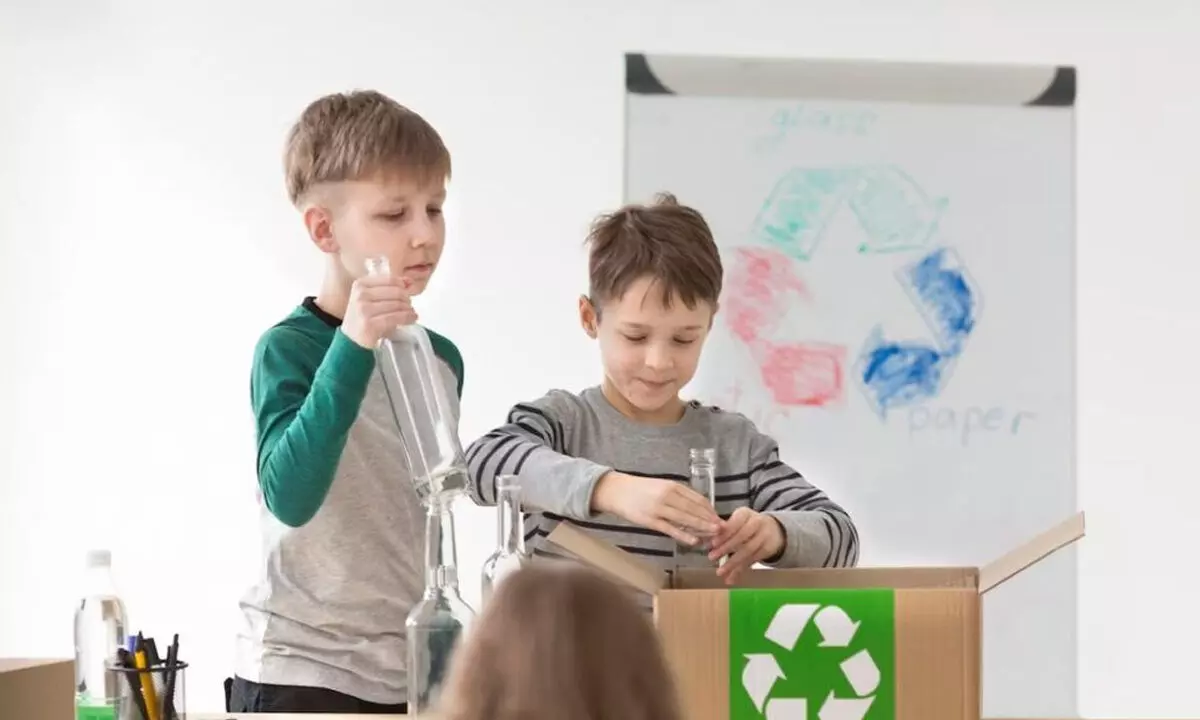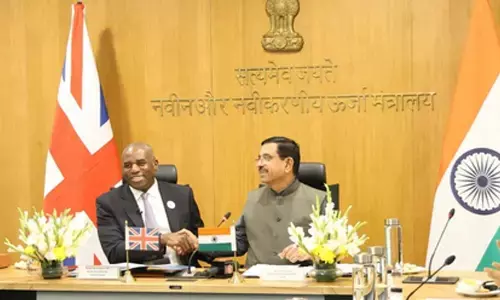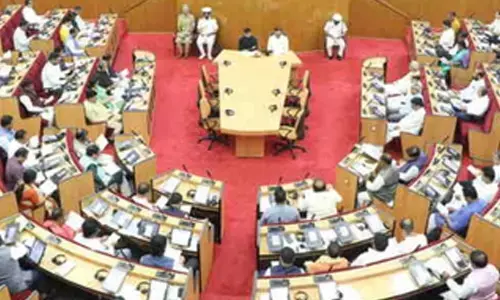Teaching sustainability in classrooms and beyond

Ranked 26th in the Children’s Climate Risk Index (CCRI) , India faces mounting climate change-driven challenges, with over 130 million children exposed to extreme water stress and drought.
Ranked 26th in the Children’s Climate Risk Index (CCRI) , India faces mounting climate change-driven challenges, with over 130 million children exposed to extreme water stress and drought. Rising temperatures and water shortages increasingly jeopardize children’s health, education, and overall well-being, making urgent climate action essential. A study by the M.S. Swaminathan Research Foundation highlights how children in states like Bihar, Gujarat, and Uttar Pradesh are at greater risk of malnutrition, being underweight, and facing a higher likelihood of early pregnancies due to recurring climate disasters like floods, droughts, and cyclones.
These detrimental impacts call for the urgent inclusion of sustainability in school curricula to help children develop an early understanding of environmental issues and encourage responsible decision-making. Schools can play a prominent role in fostering sustainability competencies —skills like collective problem-solving, considering diverse perspectives, and finding solutions to mitigate environmental challenges. Students are equipped to face global environmental challenges through practical activities like recycling, reducing consumption, and managing resources. Early exposure to such ideas and skills creates a ripple effect that benefits society and the planet.
Understanding Sustainability in Education
Sustainability in education teaches students about the interconnectedness of environmental, social, and economic systems and promotes responsible behaviour to address global climate issues. Aligned with UNESCO’s Education for Sustainable Development (ESD) 2030 framework, it empowers students with the knowledge and skills to take meaningful action. Building on earlier efforts like the UN Decade of ESD (2005-2014) and the Global Action Programme (2015-2019), ESD for 2030 focuses on integrating sustainability into education systems worldwide. As part of these efforts, UNESCO’s Greening Education Partnership aims to convert 50% of schools into Green Schools by 2030. Tools like the Greening Curriculum Guidance and Green School Quality Standards provide frameworks for incorporating environmental topics into curricula and promoting sustainable school practices.
Similarly, India’s National Education Policy (NEP) 2020 emphasizes environmental awareness and sustainable development at every stage of education. It encourages the inclusion of topics like water and resource conservation alongside traditional Indian knowledge systems to deepen students’ connection with the environment. Likewise, NCERT’s “Towards a Green School” initiative promotes eco-responsible comportment by integrating academic learning with practical application. Together, these initiatives ensure that students learn about sustainability and actively practice it through energy conservation, waste management, and other sustainable practices in their daily lives.
Experiential Learning for Sustainability Ethos
Schools worldwide are incorporating sustainability into their teaching and operations. Green School in Bali focuses on sustainability through eco-friendly buildings made from bamboo and renewable energy sources like hydropower and solar power. Students engage with green studies and environmental science in a hands-on natural environment. UasoNyiro Primary School in Kenya conserves water in its arid environment by collecting 350,000 liters annually, which irrigates school gardens and teaches sustainable water practices. In the same vein, the Australian International School in Singapore incorporates solar energy into its curriculum with over 1,000 rooftop panels. Use school gardens to teach students how to grow vegetables, apply organic fertilizers, and explore sustainable farming methods, integrating their curriculum with local agriculture and biodiversity conservation.
Adopting sustainability-centric education is essential for equipping students to address the complex environmental issues of the future. A well-rounded curriculum nurtures critical thinking and problem-solving skills, guiding students to understand key topics such as climate change, resource management, and ecological balance. By inculcating a sustainable mindset, schools can help students grasp the effects of population, consumption, culture, and social fairness on sustainability while offering insights into global interconnections and the difficulties diverse communities face, promoting empathy and broader perspectives. With a focus on interdisciplinary learning and real-world applications, schools should encourage students to make informed, sustainable choices that positively impact their surroundings, leading to a more equitable and climate-resilient future.
(The author is Co- CEO Crimson Schools)








